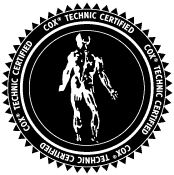Spine and Back Pain and Depression and Cognition Helped by Anti-Inflammatory Diet
Inflammation is effective and normal…in certain circumstances like defending a part of the body that is injured or infected. Inflammation is not beneficial...like when it hangs around too long. Inflammation is a cellular level event and may contribute to a multitude of chronic diseases: cardiovascular, gastrointestinal, lung, mental, metabolic, neurodegenerative, and more. (1) Shoreline Medical Services/ Hutter Chiropractic Office strives to reduce inflammation’s influence on the health of our Groton chiropractic patients experiencing issues like back pain, headache/migraine, depression and even cognitive issues associated with Alzheimer’s. An anti-inflammatory diet plays a role in this effort.
INFLAMMATION LINKED TO BACK PAIN, DEPRESSION, ALZHEIMER’S…
A systematic review and meta-analysis of current medical studies concerning the role of inflammation and depression found that a pro-inflammatory diet was related to a higher risk of depression symptoms and diagnosis compared to those who ate an anti-inflammatory diet. (2) Another study recommended a connection between low back pain and pro-inflammatory diets as well. A study of 7346 people revealed that those who said they followed a highest inflammatory diet had higher risk of reporting low back pain, too. (3) Connections between diet, nutrition and Alzheimer’s disease have been reported. The good news is that nutrition was written to be able to control the immune system and even alter the neuroinflammatory processes related to Alzheimer’s and age-related cognition issues. (4) These descriptions show just how far-reaching inflammation can be.
…EVEN MIGRAINE
Migraine as primary headache is projected to affect 14.4% of people and ranked as the largest contributor to disability in people over 50 years of age. Migraine is examined a lot as to what causes it but still remains a bit of a mystery. Researchers summarized that many factors are involved: vascular function, trigeminovascular pathway activation, pro-inflammatory and oxidative stats may impact migraine pain. Studies associating migraine to the role of dietary interventions are not many, but a newer data search found that Ketogenic diet, modified Atkins diets, and low glycemic diets may improve mitochondrial function and energy metabolism, decrease CGRP (calcitonin gene related peptide) level, stabilize serotonin, and subdue neuroinflammation. Via inflammation and irregular hypothalamic function, obesity and headaches (including migraines) may be linked. The inflammatory link emerged in the published papers. Dietary interventions like the intake of essential fatty acids (reducing omega-6 and increasing omega-3 which were documented to affect inflammation) were described as beneficial. (5) Shoreline Medical Services/ Hutter Chiropractic Office understands the power diet and nutrition may have in disease issues like migraine, back pain, depression, and cognition.
ANTI-INFLAMMATORY DIET
Shoreline Medical Services/ Hutter Chiropractic Office also knows many of us do not like the word diet. It often brings to mind what we can’t have. A good diet allows a lot of good food though. Basic guidelines for an anti-inflammatory diet design include eating lean meat, eggs, fish, fruit, legumes, coffee, tea, vegetables, honey and plain dairy like milk, yogurt, hard cheeses, kefir with limited consumption of red meat and other dairy and sugar while avoiding canned/processed food, sweetened drinks, and alcohol. (6) We are sure our chiropractic patients can manage this type of diet!
CONTACT Shoreline Medical Services/ Hutter Chiropractic Office
Listen to the PODCAST with Dr. James Cox on the Back Doctors Podcast with Dr. Michael Johnson as he describes how inflammation and the immune system interact and how chiropractic care and the Cox® Technic System of Spinal Pain Management may be beneficial.
Make your next Groton chiropractic appointment with Shoreline Medical Services/ Hutter Chiropractic Office. If inflammation has overstayed its good and normal welcome, we can set up a path toward a more beneficial anti-inflammatory diet.


